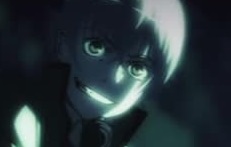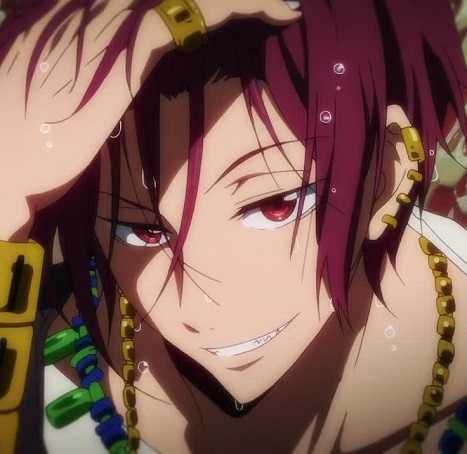Galileo Figaro Not Magnifico- Galilei Donna

I try hard to finish anime series that I start watching, and usually I’m willing to give a series time to allow the climbing action to spool up the plot. When I drop a series that I have committed to, it’s usually around 2/3 to 3/4 of the way in when things hadn’t solidified or if there are major flaws. I usually don’t write about series unless I have finished them and have strong opinions, but I’ll make this exception since my sense of disappointment was overwhelming with “Galilei Donna.” This was a series I had seen an episode of several years ago, and had looked forward to completing. Several years later, I finally got around to watching some more of the series, but the initial positive reaction I had from the first episode quickly turned sour.
Now, the easiest way to explain “Galilei Donna” would be “A Japanese take on “The Da Vinci Code.” The first episode is promising after the protagonists’ home is attacked by a space pirate Cicinho, whose charm holds you as well as the series’ pretty color palate and lovely drawings. Characters are drawn with a slight sense of realism and just a hint of texture, and there’s enough pop and vibrance in the colors to hold your attention, but forget about complex lighting and shadows. However, despite these plus points, as one progresses into the series, things never solidified.

The strong impression that Cicinho left in the first episode is not matched by the impressions left from the three main female protagonists, where their relationship with the famed scientist Galileo Galilei doesn’t enhance their identities or the story and is just thrown in for plot convenience. These individuals, also known as the Ferrari sisters, each have their own identities, but they are neither well-developed nor does the trio gel well as a group, so one wonders if their parents adopted three strangers instead of given birth to three children. The chemistry amongst the three sisters is nonexistent, and even passing them off as three bickering sisters is unconvincing. The dialogue between the trio and their guide on the wild goose chase might as well have been conducted in four separate languages, as each character’s style can’t play off their counterparts. The dialogue doesn’t build the hurtling plot’s depth nor the characters’ relationships with one another. Speaking of the wild goose chase, there’s not much said about the significance of the item being searched for or even what it is the group is looking for, other than the fact clues can be found in old maps left in odd locations by the protagonists’ distant ancestor. There is also no mention about why the three sisters are branded as wanted criminals throughout the world during this goose chase or how the group chooses to go from one location to the next in search of the maps. Instead, one gets the impression of three blind mice, scampering around the world and coincidentally tripping over the old map pieces whenever they stop for reasons other than their search. Wait, scratch the word “scampering.” Instead, the protagonists travel around the world in a giant flying goldfish mech complete with a goldfish artificial intelligence unit and built in weaponry. Being branded as wanted criminals in this world leads to being attacked by space pirates and representatives of a giant energy conglomerate with its own flying mechs. Now, I will admit that the hybridization of the cities’ old-world charm with mechs is nice, but one gets the sense that ideas to make the series unique were being thrown at the wall and all were accepted by the focus group. Attempts at creativity thus instead come off as being ridiculous, and there is no clear message or sense of unity being portrayed.

It wouldn’t be as big of a problem if the plotline came together and answered questions such as “what are you looking for,” “why is this so important,” “how are these things linked together,” and “where are you going next,” but these things aren’t addressed at all, so the inherent structure and framework of the story isn’t held together with any sense of purpose. Things happen and characters react, but on instinct rather than reason, so the plot just speeds off wherever the front of the goldfish mech is facing. And it needs to speed, because how else can “The Da Vinci Code” be crammed into 11 episodes other than sacrificing depth and reason?
It is no wonder then, that after seven episodes, I had enough. It was not worth continuing this mess of a series, which thankfully has not made its way over to the United States. What was also disappointing was that “Galilei Donna” was part of the Noitamina block of shows, being marketed towards an older audience and featuring gems such as “Paradise Kiss,” “Ping Pong,” “Silver Spoon,” and “Kids on the Slope.” I had looked forward to finishing this series up after an initial strong impression of the first episode, but the only thing that could have happened is that the plot speed up even more to finish the wild goose chase or the questions that one had throughout the series would never be answered by the series’ end. Either way, I saw no way of “Galilei Donna” redeeming itself in four episodes from all of the trouble it got into during the first seven episodes. Give this series a pass, as it is a prime example of the phrase “Don’t judge a book by its cover.” Only in reverse.





